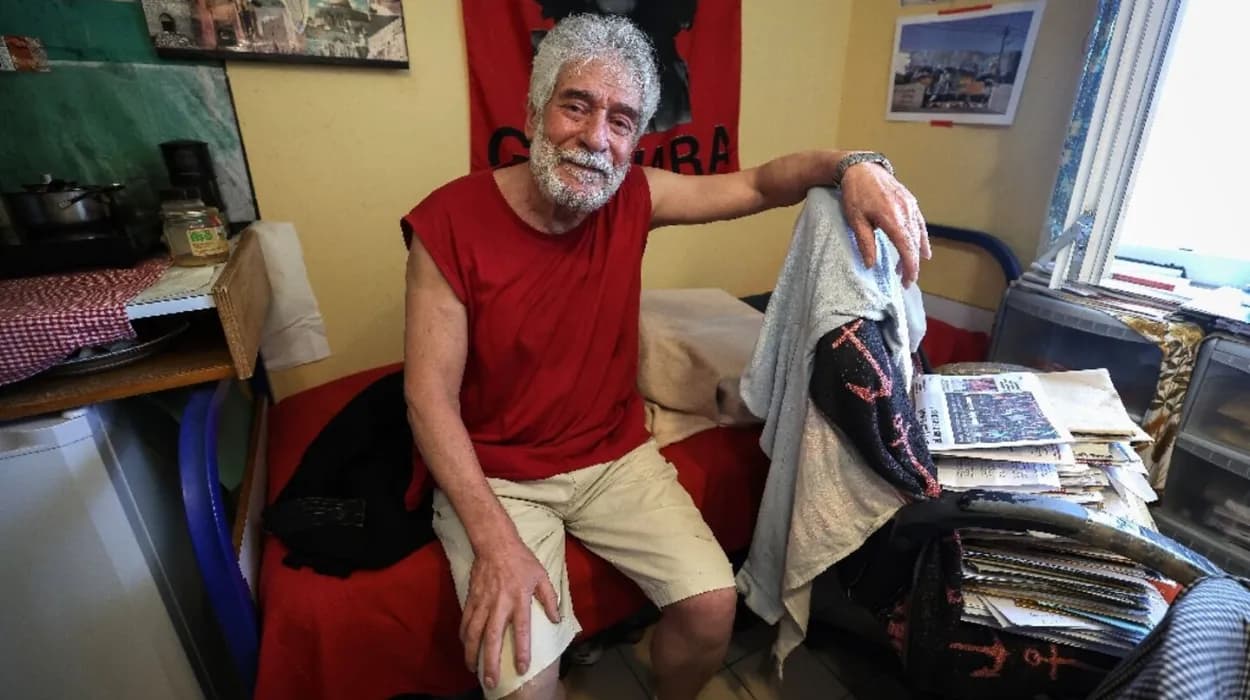Lebanese militant Bassam al-Sabbagh said his commitment to
the struggle helped him endure imprisonment in France, where he was held on
terrorism charges. His statements were made during a recent interview
reflecting on his time behind bars, emphasizing resilience and ideological
steadfastness.
What are the circumstances surrounding Bassam al-Sabbagh’s imprisonment in France?
As reported by journalist Marie Dubois of Le Monde,
Bassam al-Sabbagh, a Lebanese militant affiliated with a controversial
organisation, was arrested and detained in France on charges related to
terrorism in early 2024. His arrest came amid heightened European vigilance
against militant activities linked to Middle Eastern conflicts. The French
authorities alleged that al-Sabbagh was involved in coordinating operations on
European soil, leading to a string of legal actions that culminated in his
imprisonment[Dubois, Le Monde].
How did Bassam al-Sabbagh describe his experience in French prison?
In an exclusive interview conducted by journalist Thomas Lambert for Libération, al-Sabbagh described his prison life as deeply challenging but stated that his commitment to the cause and his struggle helped him endure the psychological and physical hardships of incarceration. He remarked that despite the isolation and tough conditions, his ideological resolve was unshaken.
"The struggle sustains me. It is not merely survival; it is resistance,"
he said, underscoring the importance of his
beliefs in maintaining hope behind bars[Lambert, Libération].
What has been the reaction of Lebanese and international communities to al-Sabbagh’s imprisonment?
According to Lina Haddad of Al Jazeera English,
reactions in Lebanon are mixed. Some political groups view al-Sabbagh as a
prisoner of conscience, a victim of political suppression by Western nations
targeting Middle Eastern militancy. Meanwhile, governmental officials in Beirut
have maintained a cautious stance, publicly calling for justice and adherence
to international legal norms, without endorsing al-Sabbagh's actions.
Internationally, European security agencies see his detention as a success in
countering extremism but caution that his release would need careful monitoring
given his militant background[Haddad, Al Jazeera English].
Why does al-Sabbagh believe his 'struggle' helped him cope with imprisonment?
Interview coverage by journalist Julia Meier for Der Spiegel delves into al-Sabbagh’s reflections on the mental and emotional toll of incarceration. Al-Sabbagh articulated that his struggle against perceived injustice and occupation provided a sustained purpose, which he credited for his endurance. He claimed that the sense of fighting for a cause larger than himself shielded him from despair, supported by regular communication with fellow prisoners and ideological texts circulated among them.
"Without this struggle, the nights would have been unbearable,"
he noted, illustrating the psychological mechanisms of resistance in
confinement[Meier, Der Spiegel].
What are the implications of this interview for French counter-terrorism policies?
Security analyst Claudine Roche of The Financial
Times highlights the tensions that such interviews provoke within
France, where public opinion is sharply divided. On one side, some view the
acknowledgement of militants' ideological resolve as a troubling sign of
radical staying power, which may inspire others. On the other, experts argue
that understanding prisoners' perspectives can inform more effective
rehabilitation and deradicalisation programs within the penal system. The
interview spotlights the ongoing challenges faced by French authorities
managing terrorism suspects, balancing security, justice, and human
rights[Claudine Roche, The Financial Times].
What has al-Sabbagh’s legal representation stated about his detention?
According to his lawyer, François Lemaitre, speaking to Agence France-Presse (AFP), the legal team argues that al-Sabbagh’s imprisonment has been excessively prolonged without sufficient evidence for some accusations, and that his rights under French and international law must be respected. Lemaitre emphasised that while defending his client’s legal position, they also condemn any violent acts outside the acceptable framework of legal resistance.
"The law must be the guiding standard, not political expediency," he said[AFP].
What context does this case provide on the broader issue of Lebanese militancy and European security?
Insightful analysis by Omar Khalil of Middle East
Eye places al-Sabbagh’s case within the larger geopolitical struggles
involving Lebanese factions and their diasporas. Europe's role as a battleground
for proxy conflicts exposes vulnerabilities in counter-terrorism frameworks and
raises questions about integration, surveillance, and community relations. The
militant’s comments on 'struggle' thus resonate beyond the prison walls,
symbolising persistent ideological divides that complicate security and
diplomatic efforts[Omar Khalil, Middle East Eye].
What can the public expect next in this story?
The French justice system has scheduled further hearings
related to other alleged co-conspirators connected to al-Sabbagh’s network.
Human rights organisations have called for transparency and fair treatment,
while security agencies remain vigilant against any resurgence of militant
activities. Al-Sabbagh’s reflections serve as both a personal testament and a
reminder of the complexities facing nations dealing with terrorism and
ideological warfare.
